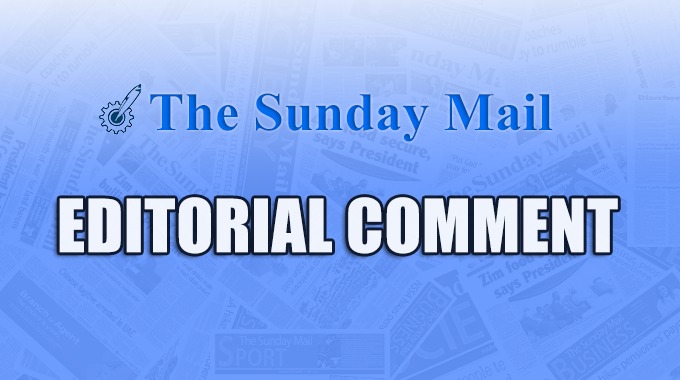
The Sunday Mail

One of the most important economic functions of the central Government is the provision of the infrastructure required for the private sector and investors to operate efficiently and grow their businesses so the country develops and the economy grows.
Zimbabwe’s economic planning recognises this, with a very strong pro-investment strategy and the need to expand and empower the private business sectors, and bring in a lot more Zimbabweans to become productive business creators, with special emphasis on building up marginalised and under-represented groups such as women and youths.
The Government itself has accepted it has to play the major role on the core infrastructure: roads, major dams, and access to water, first-class social services such as universal health and education, and, critically, power supplies. Even where welcome private investment can help in these areas, and can supplement Government efforts, the scale of the capital investment needed means there must be active Government efforts.
In several forums and meetings during his trip to New York for the 78th United Nations General Assembly, President Mnangagwa has been outlining what is being done, what needs to be done and what would make the process faster and easier. Traditionally, at least since the Second World War, the multilateral financial institutions, led by the World Bank, but including a range of others, have set the pace for the developing world through granting access to capital funding at a modest cost and usually including terms that mean repayment starts once the new revenues generated by this investment start flowing in.
President Mnangagwa tackled this in his main address to the General Assembly, adding his voice to others from the developing world for a more serious approach, for more resources, for a great deal more fairness, and for these institutions to be concentrating on their economic and social functions, rather than being used to advance the political agendas of the developed countries that dominate the voting.
Zimbabwe has been particularly affected over the past 23 years by the imposition of financial sanctions by a small group, led by the United States. However, waiting for the end of sanctions and waiting for fairer and more active global development institutions, is not the most practical of policies when something needs to be done now. So, President Mnangagwa and the Second Republic have been moving forward and mobilising resources, both internally and externally. They have been doing so successfully to convert Zimbabwe into the fastest-growing economy in Southern Africa.
But we would be moving even faster if we were treated as the normal country we have become, with free and fair elections, with the national budget now properly managed, and with corruption highlighted as a major public enemy that simply cannot be tolerated.
Just because some countries dislike whom the majority of Zimbabweans voted for is not an excuse to hammer those voters and their families.
This new emphasis on private sector investment was highlighted in a meeting President Mnangagwa had with General Electric, a giant American corporation and probably the largest company in the world’s electric energy sector, at least as designer and supplier of equipment. The meeting clearly dealt with practical issues, since the executive chairman of Zesa Holdings, Dr Sydney Gata, was flown over to attend; it went far beyond a good-natured chat.
Climate change and the growing occurrence of subnormal regional rainfall, especially in Angola, where most of the Zambezi water comes from, may well require a costing rethink if the generated power becomes more expensive than what could be produced by similar investments in other sources. But it is still on the table and everyone needs to be firming up their figures and final plans.
We know that Zesa was keen on some shorter-term and medium-term supply of spare parts for Kariba South, and the rebuilding of the older units of the Hwange Thermal Station, with the 220MW Unit Six already withdrawn from use and being stripped down for assessment. Presumably, there is discussion on payment terms, again needing to bridge the gap between supply of the equipment and the money flowing in from the meters in the factories and mines when the unit is back on the grid, going full blast.
President Mnangagwa’s multiple approach, of seeking changes in the systems, as well as pursuing practical solutions immediately, shows that he is not neglecting any opening or any road to accelerating the economic growth and development of Zimbabwe. We hope they all work, so we move forward ever faster, but the President is not limiting himself to a single hope.



